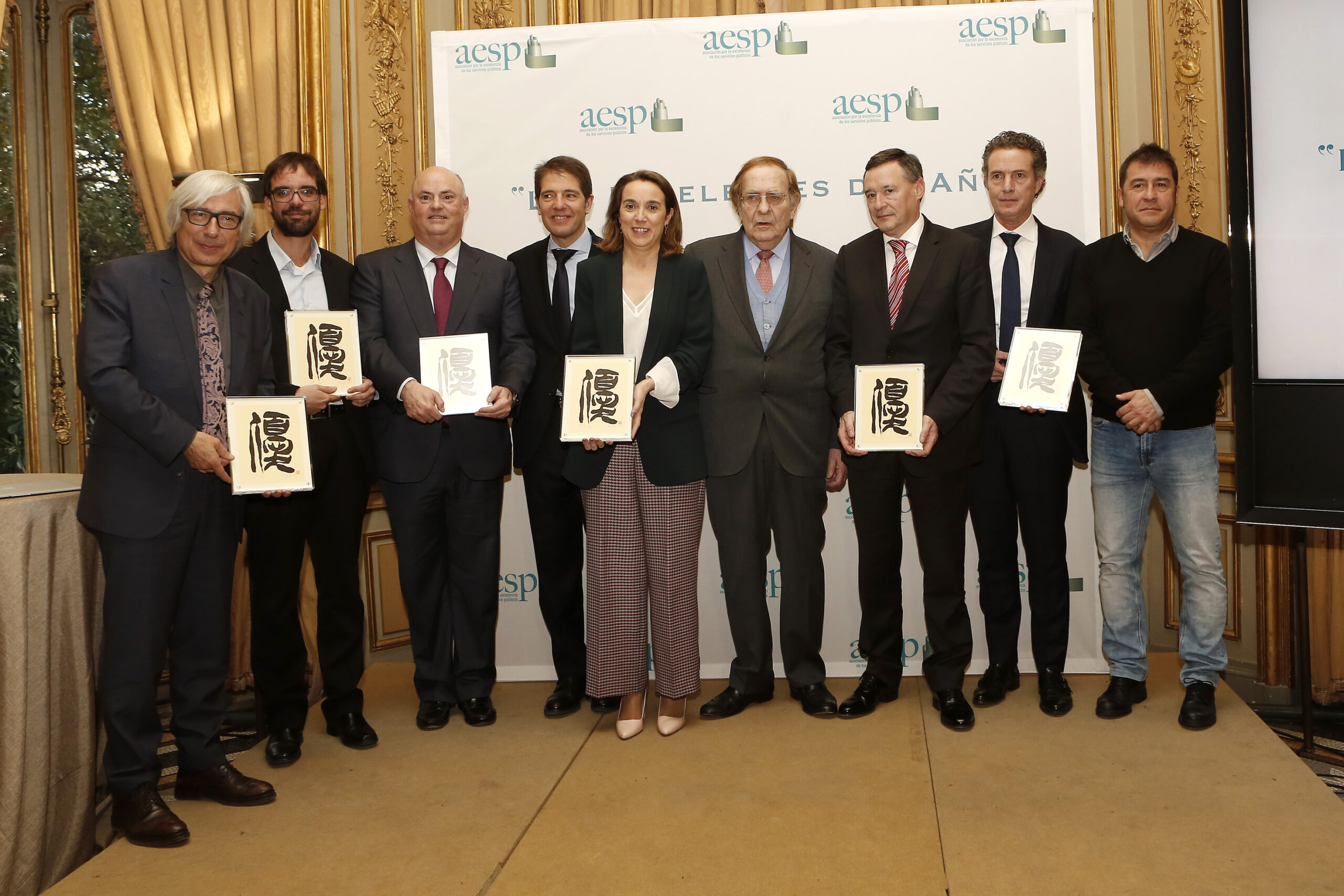This morning I went to the Casa de América in Madrid, a beautiful place that always reminds me of the roots that connect Spain and Latin America. My visit was due to Ribera being acknowledged by the Asociación por la Excelencia de los Servicios Públicos for the work that we have carried out in the Ribera Department. Receiving this award during such tough times has given us a real boost. It shows how we should never give up our search for excellence in public service management. I wanted to take this opportunity to reflect on the decisions that local and autonomous governments are currently making. These are not merely trivial measures; I believe that they are measures that will be detrimental to the quality of services that Spanish citizens receive. I´ll leave you here with the words that I shared with the attendees this morning so that you can draw your own conclusions:
«Good morning everybody and thank you very much for the award given by the Asociación por la Excelencia de los Servicios Públicos. It is with great pleasure that I accept this on behalf of the 6,000 professionals currently working for Ribera Salud. I would like to dedicate this recognition to all of them and to everyone who, with their hard work and spirit to constantly improve, is contributing in making Spain a modern, innovative and advanced country.
Healthcare is a very sensitive subject that affects everyone and the challenges that we have to face brought about by social changes such as the ageing of the population, technological advances, the appearance of new medications and new diseases, are challenges that affect every country worldwide; from the most developed to those that aspire to have advanced healthcare models as we do here in Europe.
For this reason, it is surprising that in our country there are still people who aren´t aware of the fact that these challenges, of which we are looking for ways to overcome, do not arise due to ideological matters but rather demographic ones. At least two of the four cornerstones of the welfare state (healthcare, education, pensions and unemployment) have a direct correlation with the demographic development. They are not problems that are resolved through ideological discussions but rather with intelligence; bringing together talent, knowledge, experience and funding, both in the public and private sector.
In 2017, the year for which we received our award, was a year full of contrasts for Ribera Salud. The year started with great satisfaction owing to the news that the new tripartite government in the Valencian Community, which had issued a report to the Court of Auditors regarding the evaluation of the concessional model, concluded that hospitals with indirect management save 25% in Public Administration. In addition, they stated that waiting list times are much shorter, quality indicators are far superior, they give greater satisfaction to citizens and the investment per capita is practically double.
Are you wondering how is it possible, with all this information, to try to get rid of a model that functions? We were overjoyed with this report but, one month after its publication, we received an official notification from the Valencian Government that our contract with Alzira would be terminated.
This is an example of the high level of legal uncertainty that exists. Whether you do an excellent job or not, the government response is the same: what incentive does a company have to do great work? What kind of example are we giving internationally if our own government does not take it into account and disregards the results of any independent studies that are carried out?
In his introduction, Enrique Linde, Professor of Administrative Law and ex Vice Secretary of the Ministry of Culture, praised the enthusiasm and optimism that characterizes the team at Ribera Salud. And it is true. We are optimistic because, looking at the long term, we believe that this country will be more responsible, independent of the situation we go through; that in the face of bias, it will put data first, that in the face of sectarianism there will be consensus and dialogue; and that in the face of imposition we will respond with transparency.
At this point, I would like to talk about the public. What do they really think? Just yesterday the Valencian Government published their indicator in which healthcare was ranked second in terms of public concerns.
The 2,016 people surveyed named their three priorities in each aspect and, in terms of healthcare, specifically the most talked-about issues and those that the Health Ministry has most strongly defended, didn´t appear at the top of the list. The most mentioned priority is the reduction in time spent on waiting lists, followed by the hiring of more healthcare professionals, the reduction in the price of medication for patients and the dedication to more resources for disease prevention. A mere 5% mentioned the overturning of concessions. Do these conclusions surprise you? They don´t surprise me.
Ribera Salud has spent 15 years reiterating the fact that the citizen doesn´t care about who manages them but how they manage them. In our satisfaction survey 94% of people weren´t aware of the management model of the Ribera Salud Department. That is common sense; that is attending to the needs of the patients, that is what the citizens demand from public servants and those in charge of public services. Everything else only pleases in the short term and leads to problems in the future.
On behalf of the citizens, who are our main reason for doing what we do, and on behalf of our professionals, which we will always support, I am immensely proud to be granted this award.
Thank you very much».

